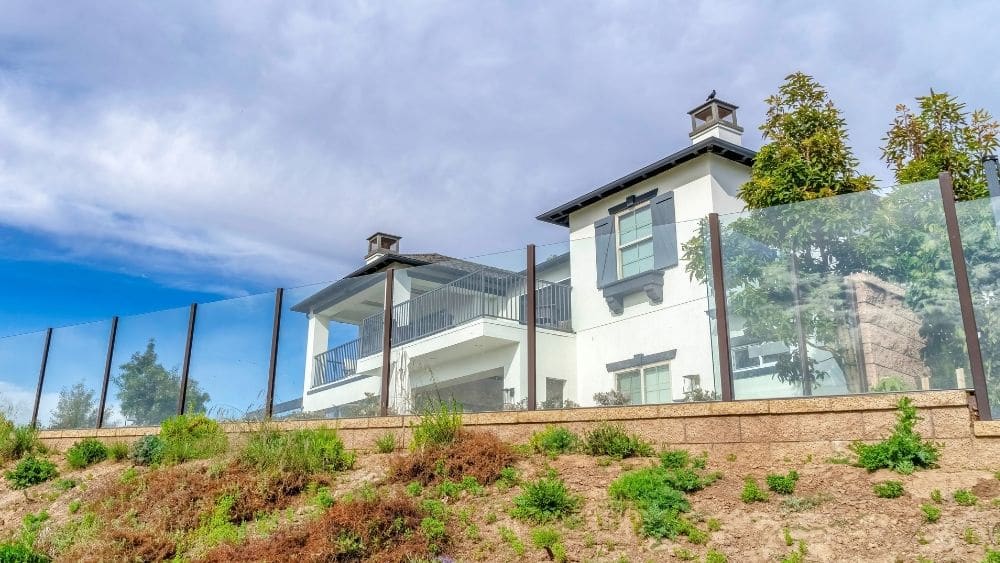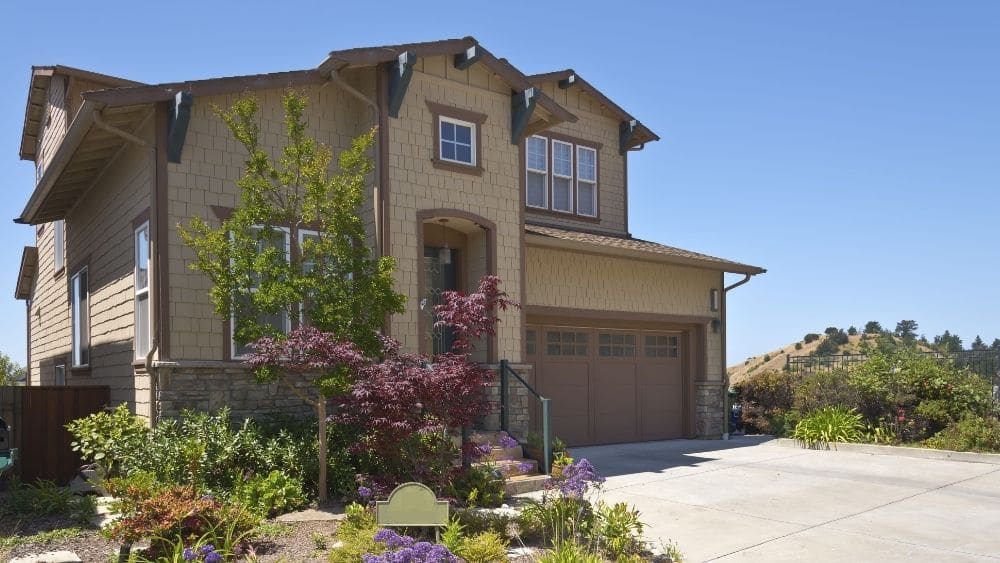
Los Angeles, San Diego, San Francisco – welcome to the gorgeous Golden State packed with bustling cities and, not surprisingly, some of the most expensive housing in the United States. If you’re a homebuyer ready to call California home, make sure you’re saving up a hefty sum to cover closing costs.
California’s housing market is the second most expensive in the country, next to Hawaii. In May 2021, the average home in the state was priced at $818,260, according to the California Association of Realtors. Along with steep housing prices comes pricy closing costs; saving a 20 percent down payment is a major feat, but homebuyers in California need to factor in closing costs of about one to three percent of their home purchase.
Closing costs are another crucial expense, encompassing all the fees involved in the final stages of your home purchase. In California, that may involve your lender’s origination fee to set up your home loan to buying earthquake insurance and home insurance before moving in, and everything in between. Instead of paying each service provider one-by-one, these expenses are grouped together and paid in one single sum on your closing date.
So how much are closing costs in California?
Our guide to the Golden State has you covered, with an in-depth look at how much homebuyers should expect to spend on closing, what’s included in the bill breakdown, and how you can save thousands of dollars on this step in the homebuying process.

How Much are Closing Costs in California?
Beautiful weather year-round, stunning new homes, and a thriving economy comes at a premium: California has some of the highest closing costs in the country, at an average of $3,474 for a $541,350 home, according to a 2021 report by ClosingCorp, which researches residential real estate data. That makes up just 0.64% of the home price, but ClosingCorp still ranks California as the 10th state with the highest closing costs.
Keep in mind, these figures are based on a homebuyer applying a 20 percent down payment, which eliminates the need for private mortgage insurance. Other state-specific expenses, like earthquake insurance, hiring a surveyor or obtaining flood certification aren’t included in this estimate. Your total closing costs bill increases depending on the price of your home and where you live in the state.
It’s worth noting that in the 2020 ClosingCorp report, California had the fourth highest closing costs in the country. For a $622,881 home, Californians were spending $5,064 on closing costs excluding taxes, or a grand total of $6,537.
California represented the entire top five list of the cities with the most expensive closing costs in the United States. San Francisco – Oakland – Berkeley topped the list with a whopping $11,125 for a home priced at $1.02 million, followed by San Jose – Sunnyvale – Santa Clara, Los Angeles, Santa Cruz, and Napa.
For comparison’s sake, the national average for closing costs for the purchase of a single-family home was $6,087 in 2021.
California is a mixed bag when it comes to whether the seller or the buyer pays for various components of closing costs. Homebuyers may find regional rules on who pays for what, depending on whether you live in Northern or Southern California, and even as detailed as the specific county. Escrow fees can be split, or paid by the buyer or seller, depending on the city.

What’s Included in California Closing Costs?
Compared to other states that have more uniformity in closing costs, the West has its own set of nuanced rules. There are a lot of moving parts on closing day, with a unique list of state-specific rules on who pays for what. Here’s what to expect in California:
Loan Origination Fees
Regardless of where you’re buying a home in the state – or elsewhere in the country – you’ll need to start your homebuying process with securing a mortgage. Across the board, loan origination fees are one of the initial costs you’ll encounter in your closing costs bill breakdown unless you’re paying cold hard cash.
Loan origination fees are what your lender charges you to set up and process your home loan application, including underwriting. Expect to spend about 0.5 to one percent of your loan amount on these fees. In May 2021, the average home in Southern California had a price tag of $752,250, which means a loan origination fee fell between $3,761 and $7,522.
Credit Report Fee
During the underwriting process, your lender will check your credit score before offering you a loan. Expect the lender to pass along this $25 expense to you. If more than one borrower is involved, double this expense because your lender will need to pull both of your credit reports.
Escrow Fees
Here’s where things get region-specific in California with the north and south having distinct customs: in the north, escrows are performed by title insurance companies only. In southern California however, buyers and sellers recruit separate escrow and title companies, according to the California Department of Real Estate (PDF).
In both the north and south, escrow fees are typically split between buyer and seller right down the middle.
Buyers and sellers need to agree on this shared service – you might propose one company to your seller or builder, and they’ll need to sign off on the title company before proceeding.
Escrow fees aren’t fixed by law or state regulated. Some title companies in California will charge a percentage of the home sale, usually about one percent, while others have a fixed fee.
Your title company acts as the neutral third party between you, the buyer, and the seller or home builder. They’ll hold all your funds in a third-party escrow account, so you aren’t paying the seller until the ink is dry on your home purchase. You can also count on your title company to guide you through all the nitty gritty details, like buying adequate insurance policies and executing the title search.
In most closings across the country, the buyer and seller meet on closing day to sign off on the paperwork with their lawyer or title company. This isn’t necessary in California; under the state’s law, you can leave the communication up to your service providers who represent your needs. You can just show up at your home to collect your keys from your title company if that’s your preference!
Title Search and Title Insurance
When you buy property – whether it’s a new build or an existing home – you must confirm that you’re going to own it free and clear. For this vital step, you’ll need to pay your title company to conduct a title search to ensure the land you’re buying has no liens or lawsuits in progress.
Traditionally, buyers pay for the title search process, which could cost hundreds of dollars, depending on the complexity of the historical records on the property. Keep in mind, your title company will need to search records dating back to the past three decades at least.
After the title search is complete, your lender will expect you to buy title insurance as a safeguard. If the title search misses something, title insurance acts as a second layer of defense so you aren’t responsible for any surprises.
The California Department of Real Estate says that in southern California, sellers usually pay for the owner’s insurance policy for the buyer, while in the north, title insurance fees are split down the middle for the owner’s policy. Buyers always pay for their lender’s title insurance policy.
California Real Estate Transfer Tax
Homebuyers in all but 13 states must account for “real estate transfer taxes” in their closing costs, and that includes California. Transfer taxes are local and state government taxes that are paid as the seller transfers the home to the buyer. They may be listed as a deed tax, mortgage registry tax or stamp tax on your closing costs bill. Some states, California included, even charge a recording fee for this transfer of property.
In California, you may be faced with county and city transfer taxes all at once. The current state tax rate is $1.10 per $1,000, according to the California Revenue and Taxation Code. For a $600,000 home, for example, the property transfer tax would be $660.
Then you’ll need to factor in city and local transfer taxes. There’s a solid reason why Alameda County has the third highest closing costs in the United States. Here, transfer taxes are $12 per $1,000 in home value.
In San Francisco – the county with the second highest closing costs in America – the average home is about $1.39 million. That price tag would command transfer taxes of $3.75 for every $500, based on the San Francisco Office of the Assessor-Recorder regulations.
Homebuyers in southern California can breathe a sigh of relief, though; traditionally, the seller pays this tax, but you should always check on transfer tax rates before bidding on a home so you aren’t blindsided by this tax.
In some cases, buyers could be on the hook for this expense if they are asking for other concessions, like dropping the home’s price.
If you’re curious about who pays for escrow charges, title fees, and real estate transfer taxes based on county, First American Title, which provides title insurance, created this detailed breakdown with over 50 counties.
Attorney Fees
Did you know 20 states require you to hire a real estate attorney when you buy a home? While this may be the case for Florida, Maryland, New York or South Carolina, Californians are off the hook for this step.
You may rope in an attorney anyway, especially if you need an expert to draw up or review contracts, or certify deeds and other legal documents. They’ll make sure your contracts are iron clad.
How much you’ll spend on an attorney in California depends on where you live in the state, how many hours you may require their services, and their rate. In California, some lawyers may charge a flat fee for helping with real estate transactions while others may charge you by the hour to the tune of up to $300.
If you have a straightforward home sale, just know you can forgo this step.

Homeowner’s Insurance
Regardless of where you live in the country, your lender will require you to take out homeowner’s insurance and have the first six months to a year of coverage paid in full at closing. Homeowner’s insurance is crucial to have in effect by closing because it’ll cover any physical damage to your home caused by fire, wind, vandalism or theft.
This is a “prepaid” expense, meaning it must be paid in cash at closing and can’t be rolled into your home financing.
Earthquake, Fire, and Flood Insurance
Another pricy – but incredibly crucial – detail about buying a home in California is ensuring you have all the adequate insurance to cover your bases. Aside from homeowner’s insurance, you’ll likely need extra insurance policies because the state is prone to several types of natural disasters.
Flooding, earthquakes, and wildfires aren’t covered in your standard home insurance policy in the U.S. They need to be purchased as separate policies and added onto your existing policy through an endorsement.
They’re a must-have, especially depending on where you live in the state. If your home is destroyed in an earthquake, for example, and you don’t have earthquake insurance coverage, you’re still on the hook to pay for your mortgage on the property. You’ll also pay the tab for repairs and rebuilding. Under California law, your home insurance company must offer to provide an additional policy to cover earthquakes.
These additional insurance policies can run up to in the thousands, depending on where you live. The closer your property is to a fault line in California, the higher your premiums will be. Homeowners in Alameda, for example, could be spending $2,744 annually on earthquake insurance alone.
Some sellers and builders constructing new homes may try to sweeten the deal by paying for an insurance policy for the first year.
In most cases, you’ll need to have all your additional insurance policies paid by closing so your lender can release the funds.
It’s also worth noting your lender may require a flood certification to determine if your property is in a flood zone. In California, this shouldn’t cost more than $25 to $50.
Property Taxes
Property taxes are a great way to introduce first-time homebuyers in California to the financial joys of homeownership. Fortunately in California, property taxes are capped at one percent of your home’s assessed value at the time of purchase – thanks to Proposition 13, which prohibits property taxes from escalating. Prior to its 1978 passage, homeowners paid about three percent of their home’s market value in property taxes annually.
Count on paying for this expense, prorated, at closing.
HOA Fees
With nearly 50,000 homeowners’ associations and 14 million people living in HOA communities in California, there’s a big chance you will need to pay prorated HOA dues at closing.
HOA fees include covering the cost of clubhouses, pools, community parks, fitness centers, trash removal, security, and fire alarm systems. The more bells and whistles your community has, the more you’ll shell out in HOA fees. These fees also tend to rise in communities with aging buildings as more maintenance is required.
Data collected in 2019 found that San Francisco was among top 10 cities with the highest HOA fees, at $463 per month.
Your seller will cover HOA transfer fees and settle their outstanding balances. After that, the onus is on you to keep up with payments according to the fee schedule. If you’re eyeing a property, it’s definitely worth asking about HOA fees upfront.
Surveying Fee
Florida and Texas are the only states in which land surveys are mandatory for single-family homes. But with large acres of land to work with in California, your lender may ask you to hire a surveyor to define property lines and confirm your property’s boundaries.
A surveyor may come to scope out the land, draw shared fences, and identify any peculiar boundaries.
If required, expect to pay about $300 to $500.
Mello-Roos Taxes
Another quirk to California homebuying is the Mello-Roos tax, which homebuyers may be slapped with depending on where you live. It allows your local city, county or school district to charge a special tax to district residents to help pay for improvements to the community’s infrastructure.
This tax will vary depending on the project at hand and where you live. If you’re worried about coming across this extra expense, ask your realtor if the property is in a Mello-Roos Community Facilities District. If it is, they can provide you with what the expected tax payment will be annually.
Appraisal and Home Inspection Fees
Before your lender decides it’s safe to transfer the funds, your potential new home will need to pass a few milestone checkpoints: an appraisal and home inspection.
Before closing, the lender will send a third-party appraiser to your new home to make sure it’s priced at the right value. The home appraisal is an essential step in the homebuying process – if you default on your home loan, your lender needs to know they can sell the property to make up for the outstanding balance.
With the inspection, you’ll need to hire a home inspector to check on the nuts and bolts of your potential buy to make sure everything is good running order. Your home inspector can also flag any issues that you may want to ask the seller to fix before finalizing the deal.
In both cases, the onus is on you, the homebuyer, to pay for these professional assessments. Count on spending up to $1,000 for each of these services in California.
Bear in mind, this price tag will fluctuate depending on where you live in the state and the size of the home. A McMansion in the Hollywood Hills would cost far more than a condominium in Sausalito.
Private Mortgage Insurance
If you aren’t providing a 20 percent down payment, your lender will expect you to buy private mortgage insurance in California. PMI allows borrowers to qualify for a conventional loan even if they put down only five to 19.99 percent of their mortgage. Your lender will refer you to private insurance companies.
While you’re the one paying for the insurance, the coverage is for your lender; because you haven’t put down 20 percent, PMI protects your lender in case of loan default.
This cost isn’t included in the tally of closing costs expenses, but PMI typically ranges from 0.25 percent to as high as 2.25 percent of your outstanding loan balance, depending on the size of your down payment and your credit score.

How Can I Lower My Closing Costs in California?
So, it’s clear to see closing costs can run up a pretty significant tab in California. But here’s some good news: there are plenty of state and local homeownerships programs that can help you offset this cost, along with other great money-saving strategies.
Here’s a closer look at some of the primary ways homebuyers in California can lower their closing costs:
Closing Cost Assistance
Taking advantage of California homeownership assistance programs is a prime way to cut back on the closing costs.
Every homebuyer should start with the California Housing Finance Agency’s slate of homeownership assistance programs.
The CalHFA Zero Interest Program provides homebuyers with a deferred payment, zero interest second mortgage to help pay for closing costs. Instead of saving up a lump sum for closing alongside your down payment, you can take out a zero interest second mortgage.
Meanwhile, the Golden State Finance Authority runs a Platinum Program, providing low-to-moderate income homebuyers in California with closing costs assistance via grants and second mortgages.
There are also useful regional programs. Escondido’s Homebuyer Entre Loan Program (HELP) offers first-time homebuyers a low-interest loan of up to five percent of their home’s purchase price to be used for closing costs.
San Diego County even runs a Down Payment and Closing Cost Assistance (DCCA) Program, which provides eligible homebuyers with a low-interest, deferred payment loan of up to 17 percent of your home’s purchase price for down payment assistance alongside up to $10,000 in closing costs assistance.
Seller Concessions
With California’s distinct regulations and customs on who pays for what, there may be more room for negotiation when you’re dealing with your seller, especially if they are anxious to sell.
Work with your real estate agent to try to negotiate some of your closing costs from your seller, whether you’re buying a new build from a property developer or you’re buying a repeat sale home.
Your seller may offer to cover HOA fees or your first-year of insurance to help offset the other expenses. If you’re buying a new home but need to pay for upgrades, you may be able to work out a deal with your builder to pay your closing costs.
Negotiate Fees
It’s also worth poring over your Closing Disclosure form provided by your lender to scope out what fees and services your lender is insisting you pay.
You have some options here: you could ask your lender to omit certain expenses from the final bill, or you could ask to stagger these expenses so they’re paid during the homebuying process in stages instead of all at once at closing.
No-Closing-Cost Mortgages
Some homebuyers can opt into a “no-closing-cost” mortgage as a strategy to keep this expense at a minimum. In this case, your lender agrees to pay for part or all of your closing costs, but you in turn pay a higher interest rate.
In the long run, this could cost you more money because of the bump in your interest rate but for some homeowners, it may be their best choice.
Adding Closing Costs to Your Home Financing
If you don’t have the upfront cash to cover your closing cost expenses, you may be able to roll this into your home loan. This means you’re off the hook for paying for these expenses on closing day, but you’ll make up for it via monthly mortgage payments that will be a bit higher. Ultimately, you’re paying interest on the closing costs tacked onto your first mortgage.
Check with your lender to see if this option is available. Keep in mind, not all closing costs can be included because some, such as homeowner’s insurance, must be paid upfront.
Comparison Shop
Whether you’re shopping for a title company, an inspector or a surveyor, shop around for the various services needed to make sure you’re getting the best deal. Some title companies or lenders have a list of go-to professionals on hand that they’ve approved. Using their referrals may come with steep discounts.
Other California Resources

Carmen Chai is an award-winning Canadian journalist who has lived and reported from major cities such as Vancouver, Toronto, London and Paris. For NewHomeSource, Carmen covers a variety of topics, including insurance, mortgages, and more.
 The Pros and Cons of Vinyl Siding
The Pros and Cons of Vinyl Siding